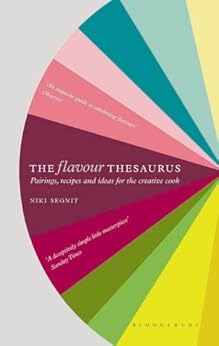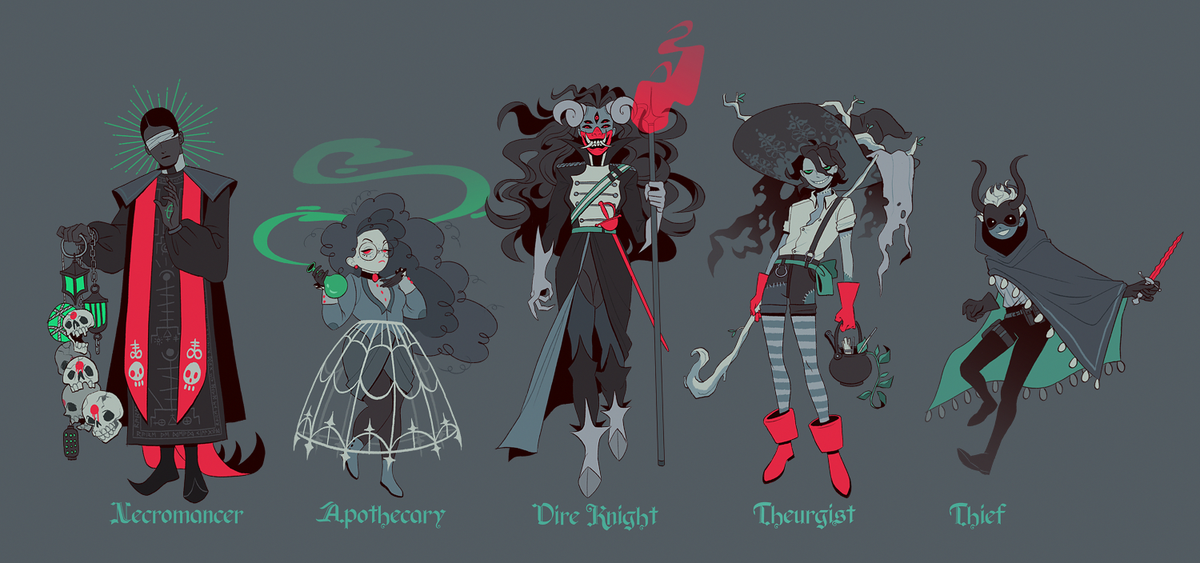 |
get this book if you like cooking
(don't worry this blog is still about RPGs) |
"But what [this book] does add up to, in the end, is a patchwork of facts, connections, impressions and recollections, designed less to tell you exactly what to do than to provide the spark for your own recipe or adaptation."
- Niki Segnit, The Flavour Thesaurus
***
The metaphor of an RPG book as a recipe is one of my favourite ways to explain the way I run RPGs, the general ethos of the DIY RPG scene, and what many consider to be the tenets of the OSR. I'm no chef, but I've worked and trained in fairly high-level kitchens, and food is as much of a hobby as mine as games are, so maybe it's just the semantics of this particular allegory that speak to me.
I don't think the metaphor is as clear and succinct to everyone as it is to me, though, since there are many folks who just don't seem to... get it. At all. Every time a lead designer from D&D tweets, for instance, their replies are filled with people who very clearly don't see their book as a recipe, but as rules or... I don't even know, something else. Doctrine? Instructions?
That's fine, we're all learning, I'm not here to shame anyone. But I've never seen the metaphor unpacked, only thrown out as a pithy remark that some of us nod sagely at and like/upvote, leaving those not in the know presumably just as bewildered as before.
Here's what it means to me when we describe an RPG book as a recipe, and why that's important.
(These lessons may be obvious you, but I feel like someone should actually say this stuff rather than all of us just knowing that we all know it.)
***
Yesterday, I made huevos rancheros.
(I know that it's not really important whether or not this actually happened, like when comedians in the 90s made jokes about their in-laws when they weren't even married, but fyi this is a 100% true story.)
 |
| mine did not look like this |
I am fairly certain that the version I made would make your abuela genuflect in abject horror. The recipe I used is from a UK based company that emphasises quick and easy meals with no prep and few ingredients. Cheap and cheerful, as we say on this side of the pond.
I'm sure there are well-meaning cooks who would be able to share with me their own recipes, or tips on how to change the one I was using into something vaguely beginning to resemble authentic Mexcan cuisine. I'm sure, in the eyes of any chef with even a modicum of talent, my recipe was inauthentic and therefore unacceptable.
They're right, of course they are, but they're right for them. With all respect, if you're not eating my meal, hypothetical chef, your opinion means nothing to my situation. You're not at my table. If I want a new recipe I'll ask, but the recipe I used works, for now, for me.
Lesson: Use the recipe (recipe means game book, remember) that works for your table and your group. Other groups are not your group.
The recipe I used calls for tomato frito. I didn't have any, so I used passata and added extra garlic. It tasted fine. I also didn't have a tablespoon handy so I eyeballed all my amounts for spices and stuff.
I wasn't "doing it wrong". I didn't do it exactly as written, I improvised, and I was happy with the results. I am still playing the game as intended.
Lesson: A recipe is a guideline. If you follow it roughly, messily, or make substitutions, and the game still works, you are following it correctly.
Little substitutions & changes like that are the kind of thing cooks expect will happen almost 100% of the time a recipe is used in a non-professional environment. Even professionally, though generally not in such a spontaneous manner.
I grew up in a house with shelves piled with recipe books, and pretty much every one of them had my dad's notes scrawled in places, making changes. His changes worked. We didn't have a lot when I was kid, but I ate well.
The people writing recipes don't care - they really don't care - about you following their instructions to the letter. They care about you making a meal. (And if they care, fuck 'em, they're not eating it.)
Lesson: The designer is not at your table, and they do not get a say in how you use the recipe. The recipe itself is their final word - take it however the fuck you please.
 |
| David Chang, a chef with the right kind of attitude about this stuff. Stop reading this bullshit and go watch Ugly Delicious on Netflix |
So, the recipe called for coriander. My partner - the only other person who would be eating this meal with me - doesn't much care for coriander. (Besides, my coriander plant was dying. I'm not good with plants.)
The recipe already had plenty of spice and flavour, so I felt fine leaving an ingredient out. I wouldn't particularly miss it, and it would make the meal more enjoyable overall for someone else.
I took a whole ingredient out, didn't substitute it or anything.
Lesson: You can use a recipe selectively to make you and your group happy. (This seems the most blindingly obvious of the lessons to me.)
 |
| "cilantro" if you're nasty |
The recipe I used calls for a few tortillas, lightly toasted, as a base upon which to dollop the bean chilli and egg.
Our local supermarket has recently begun stocking a slightly fancy brand of tortilla chip, and one of the flavours it comes in is chipotle and lime. These are two of the flavours used in my recipe, so I know they'd go together.
Hmm... Could we substitute the plain tortilla base for a flavoured one? Change a nice, healthy-ish and aesthetically pleasing foundation to our dish for what is essentially a pile of Doritos?
Not even a question; of course we can. We can do what we like, it's our meal.
(It tasted great by the way. If it didn't? No harm done, just try something different next time. Simple as that.)
Lesson: You can do whatever the fuck you want to a recipe. Experiment. Do your own design. (I know dumping chilli onto chips is hardly groundbreaking design work, but it's an idea that I came up with, tried out and kept doing because I was pleased with the result. That's all you need to homebrew RPGs.)
Oh, and I'll sneak another lesson in here, to make things perfectly clear, because people like to bandy around the word "homebrew" like it denotes an inferior product.
Lesson: A changed recipe that makes a better meal for a group is a better recipe for that group than the original.
When the meal was ready, we sat together and ate, and enjoyed the food and each other's company. I got a compliment on the meal and a thank-you, but it's not like that's a reason for doing it, that's just what happens when you spent time with good people.
The recipe isn't a recipe for friends, or love, or a machine where you can input effort and it pumps out good vibes at the other end. It's just a recipe for food.
Your job is to bring good company. Be good friends, be good people. Show affection, show appreciation, enjoy the time spent together. That's on you. "How do I be a good player/GM?" By being a good person.
Half of the complaints about games online are from people not having a good time. THAT'S NOT THE GAME, THAT'S THE PEOPLE. For fuck's sake, RPG nerds, have some self-respect. Stand up for yourself and solve the problem.
And stop playing with people you don't like. You don't have to cook for people who don't appreciate your food. Nobody's asking you to do that, nobody's making you. It's a game.
Lesson: Above all, the game is an excuse for a social gathering. The recipe and the meal you make from it, are just a shared language that those gathered can use to communicate together.
(If you can't enjoy a normal conversation with these people, how the fuck are you gonna do it with food in your mouth?)
We all clear now?
Good. I'll finish off with one last lesson, the thing that ties this all together for me, and makes the DIY RPG space such a great place to be in.
Lesson: Any idiot can cook. Hell, look at me!
And so: anyone can write their own recipe.
Get to work.
PS: a good RPG book should be designed like a good recipe book, and do the following:
- contain all the information you need to use it in the heat of the moment, clearly displayed
- completely leave out extraneous content (anything unhelpful to the actual act of cooking)
- tips, guidelines and suggestions for changes or improvements should be succinct and intriguing
- use good art, pics, design and layout to present all information words cannot, summarise any information that would take too many words, and aid general clarity (eg diagrams, good typography)
- assume the reader has basic competence but offer clear and general instruction in any specific techniques used
- in every instance wherein the reader could make a better judgement than the writer, or come up with a better idea, leave decisions about design and content to the reader ("salt to taste", for example)
- assume that the reader is acting in the best interests of themselves and those they are feeding, and not instruct or lecture them on how to be a human being







